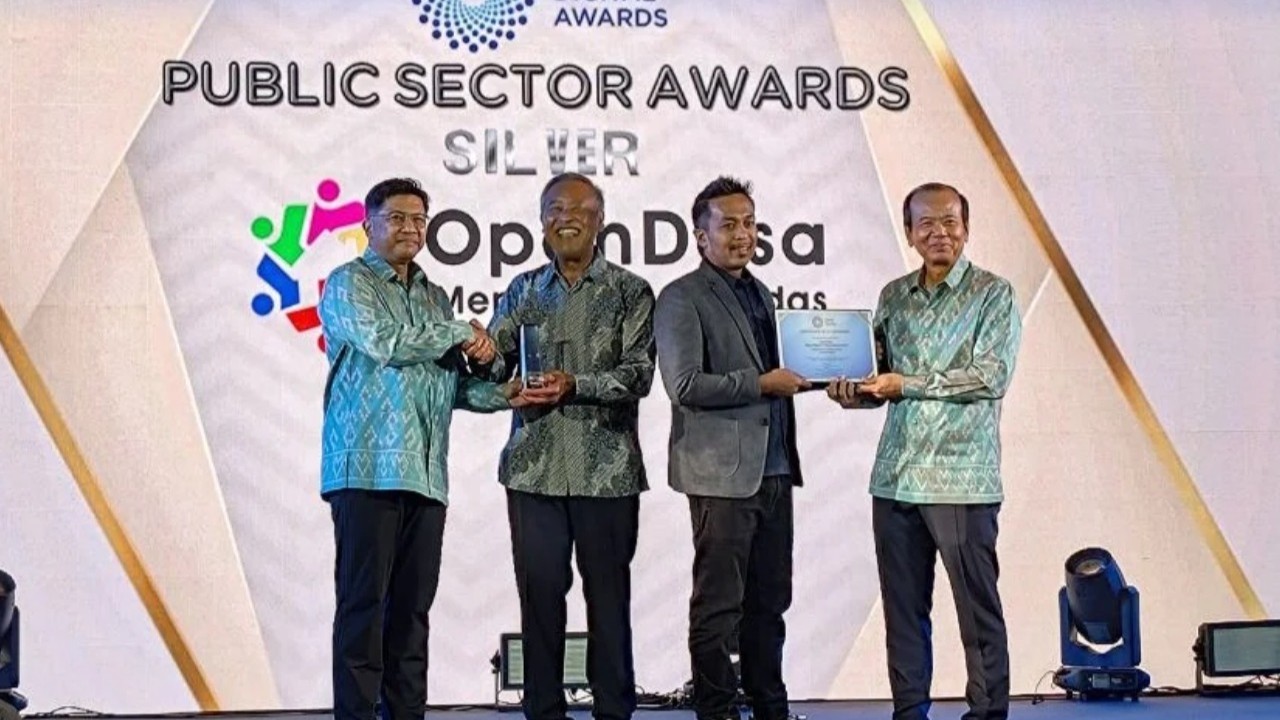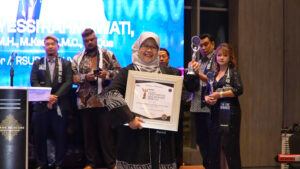Bangkok, Thailand – In a region wrestling with digital inequality and local governance challenges, Indonesia’s OpenSID—an open-source digital platform for rural administration—has emerged as a regional model. The system was awarded Silver in the Public Sector category at the ASEAN Digital Awards (ADA) 2025, held at the Capella Bangkok Hotel on January 15–16, 2025.
Developed by the Open Digital Village Association (OpenDesa), OpenSID is not just a technology—it’s a movement. Designed to modernize village governance, the platform has transformed administrative practices in over 24,000 villages across Indonesia. With modules for document management, population data, and public transparency, OpenSID stands as a rare example of community-built civic tech with national-scale impact.
The award places OpenSID alongside other public-sector digital leaders, including Indonesia’s own Ministry of Health Digital Transformation Office and Thailand’s Touch Technologies. But while its competitors were government-backed or private-sector solutions, OpenSID originated from civil society, highlighting the disruptive potential of grassroots digital innovation.
According to OpenDesa representatives Eddie Ridwan and Herry Wanda, who received the award in Bangkok, the recognition is more than symbolic. “It affirms the role of civic communities in driving government transparency and local empowerment through technology.”
The ADA jury, composed of digital ministers and tech officials from across ASEAN, evaluated entries on innovation, impact, and scalability. OpenSID was praised not only for its technical efficacy but also for its scalable governance model—allowing local governments to adapt and implement public services autonomously.
While the Southeast Asian region continues to confront digital authoritarianism and centralization, OpenSID’s rise poses a quiet but firm counter-narrative. It emphasizes decentralization, participatory governance, and data sovereignty—issues increasingly critical in discussions of digital rights and local empowerment.
Indonesia’s nomination of OpenSID at ADA 2025 followed its national win at the IdenTIK Awards 2023, organized by the Ministry of Communication and Informatics. The platform has since evolved, consistently updated by its developer community to meet the changing needs of Indonesian villages.
As Southeast Asian governments invest heavily in surveillance, e-government, and smart city projects, OpenSID raises critical questions:
Can digital tools serve people without being co-opted by centralized power? Can transparency begin from the bottom-up rather than top-down?
In an era of algorithmic control and digital opacity, OpenSID’s success is not just a technical achievement—it is a political statement. It underscores the urgency for inclusive digital transformation that empowers, not marginalizes, local communities.
For Indonesia, and perhaps for ASEAN, OpenSID may represent the first step toward redefining what digital sovereignty looks like—from the village outward.











